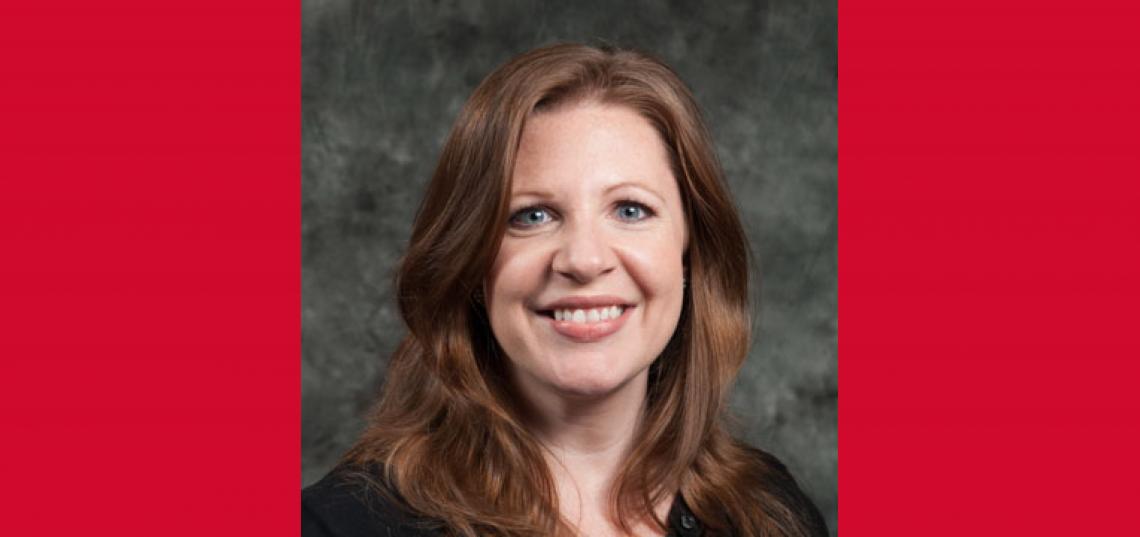
Laina Hubbard is making the most of her time at Rutgers University. While serving in her role as Coordinator in the Office of Disability Services, Hubbard is working toward her Master of Communication and Media (MCM) degree at the School of Communication and Information (SC&I), specializing in Strategic Organizational Communication. Planning on obtaining her MCM degree in 2020, Hubbard is already applying what she’s learning in the program to her current career path.
Why did you choose the Master of Communication and Media (MCM) program?
The coursework is relevant in virtually any role or industry. This degree will benefit me if I stay in the field I’m currently in, or if I choose to do something else – communication and leadership is relevant everywhere. I also appreciated the evening classes and online options, which are very helpful for working professionals.
What do you think are the top 3 benefits of the MCM program, and how did it prepare you for your career?
Flexibility (courses both in person and online, numerous electives), the wide array of course options in a variety of topics and specializations, and access to accomplished professionals who are highly productive in their respective fields.
I have not yet completed the program but I anticipate that it will give me greater ability to strategically view and influence the direction of the organization I work in, and help prepare me to be an effective and capable leader. I have already found that the courses I’ve taken thus far have influenced how I view the structure, mission, and operations of my own organization.
Do you have a specific faculty member or mentor at SC&I that has helped to guide you in the right direction professionally?
At this time, I have only worked with Richard Dool, Ph.D., Teaching Professor and Director of the MCM Program. He has been enormously helpful in helping me navigate choosing courses with an eye to my professional goals, as well as helping to think about what those goals are.
Can you tell us about your current position as Disability Services Coordinator at Rutgers University?
My current position involves both direct work with students, as well as a great deal of collaborating with other staff and faculty on the Rutgers campus. I ensure that qualified students with disabilities have equal access and opportunity on the Rutgers campus as their nondisabled peers, and I work with faculty and staff year-round to implement accommodations, ensure universal access to courses and programs, and to raise awareness of disability rights across campus.
What drew you to a career in higher education?
Higher education is an exciting environment to build a career, as there is such a great variety of roles within a system. Working in higher ed allows you to be part of an organization that is constantly generating new research, new ideas, and you’re surrounded by some of the brightest and most creative minds. Higher ed also allows you to work with people from any and all backgrounds and cultures, ideologies, and professional fields. Very few industries offer so much opportunity to engage with so many different minds.
How do you think today’s trends in communication are being utilized in higher education?
I think more and more institutions are seeing the need to reach students where they’re at: online and via apps. While change in higher education can be very slow moving, and many institutions tend toward the traditional in many ways, I see that more and more are catching up with the times and offering students access to important information and resources via phone apps, websites, etc. Student organizations are communicating via Facebook and Twitter and Instagram, professors are using more communication technology in their classroom, student groups are using communication apps to keep in touch with members, etc.
What advice do you have for current students and upcoming graduates who want to launch a career in your field?
Get to know people who work in higher education! Ask questions and learn what different departments and different institutions value. Culture is strongly embedded in colleges and universities, so having a sense of what the culture is like on a particular campus can definitely help you to navigate the interview process. Draw on your own experiences as a college student and consider how your knowledge ties in to the job you want. And, as with anything, get some experience! Internship, asistantship, volunteer, etc. If you’re on a college campus as a student, it’s fairly easy to get connected with a department in some kind of professional capacity, and from there it’s a much easier jump to full-time employment.
To learn more about SC&I’s Master of Communication and Media (MCM) Program, click here
